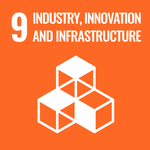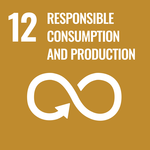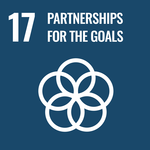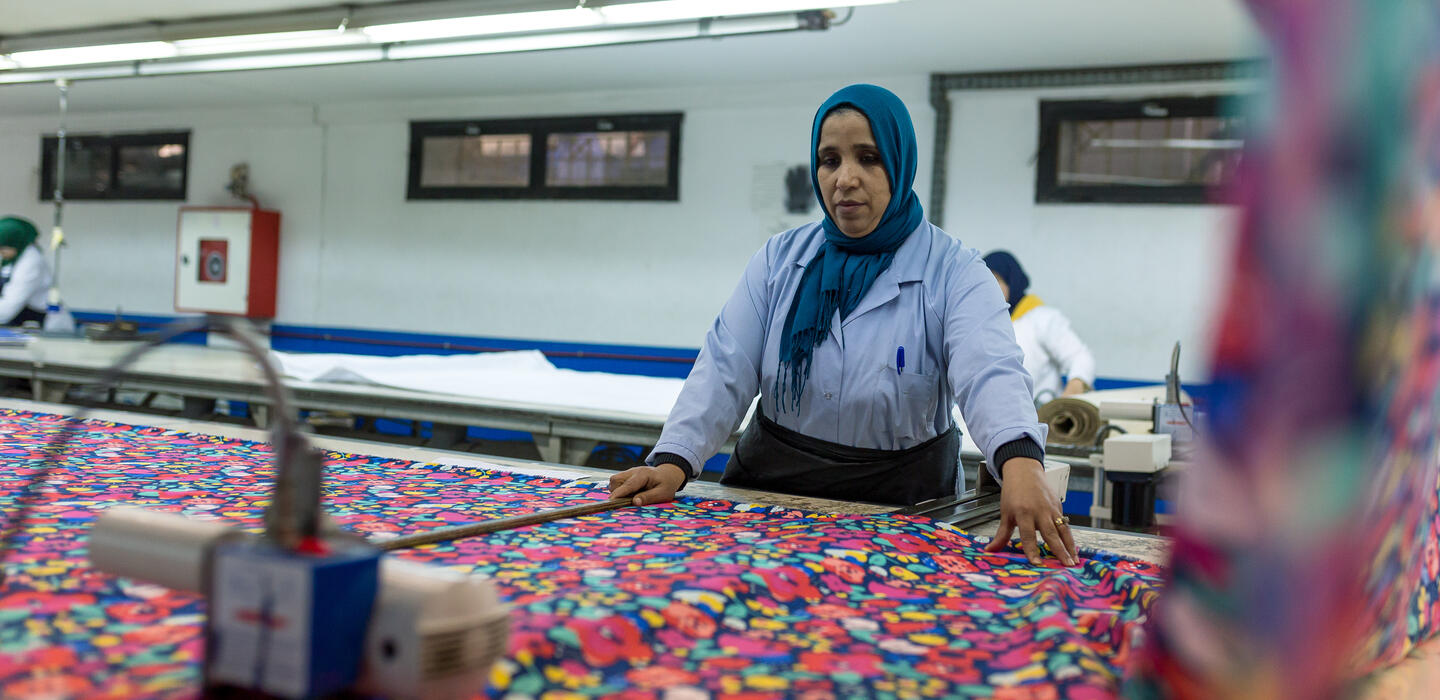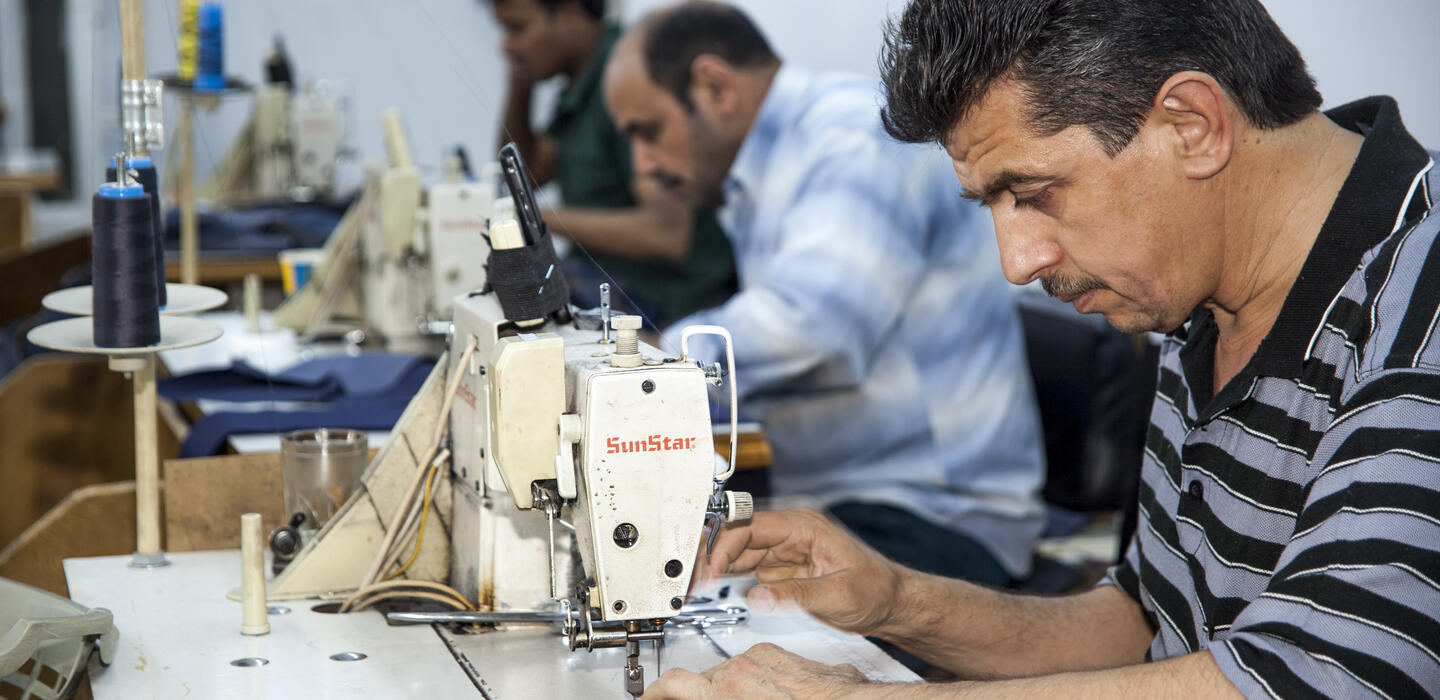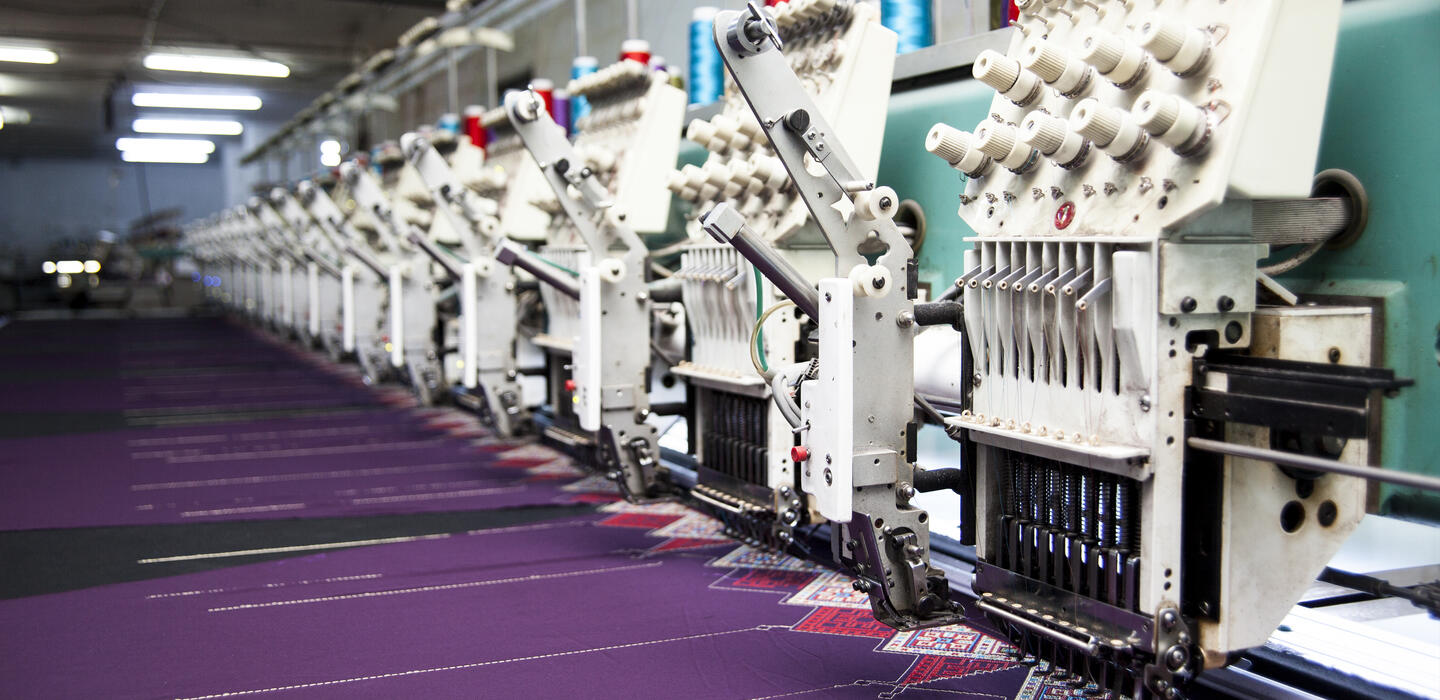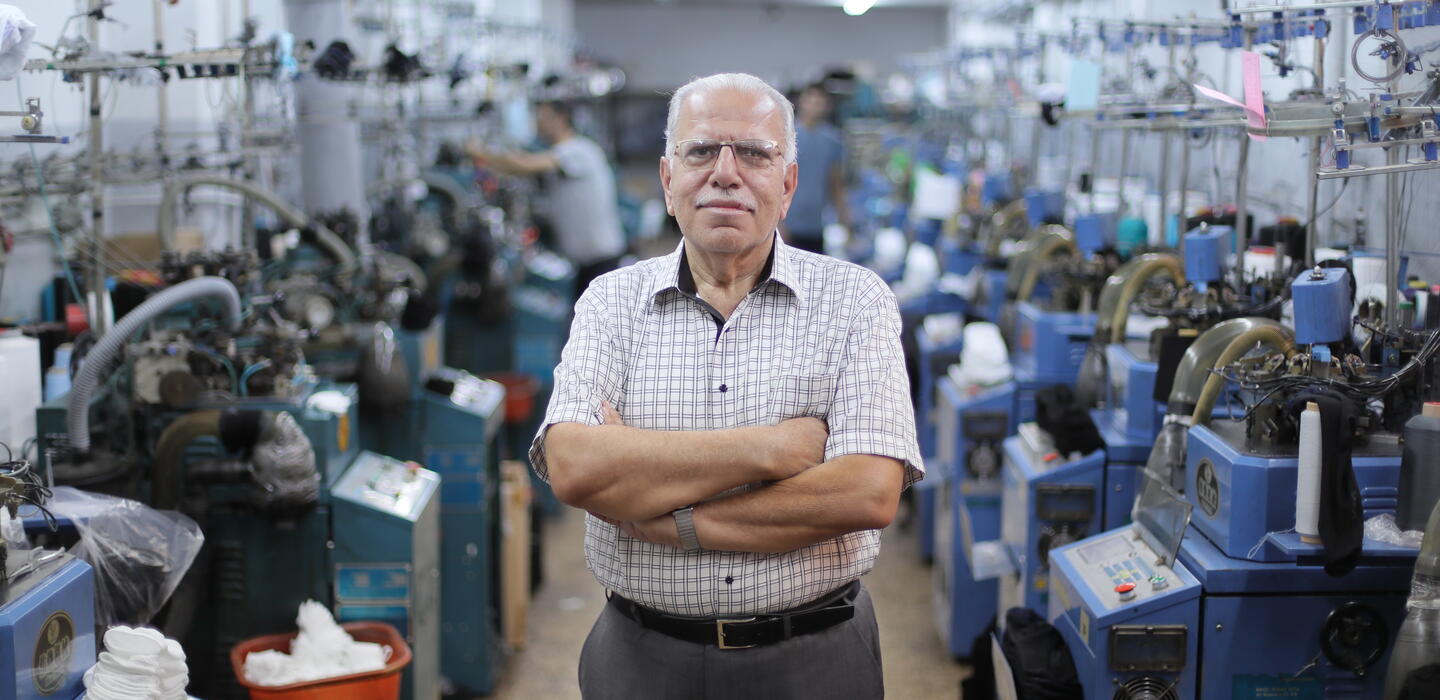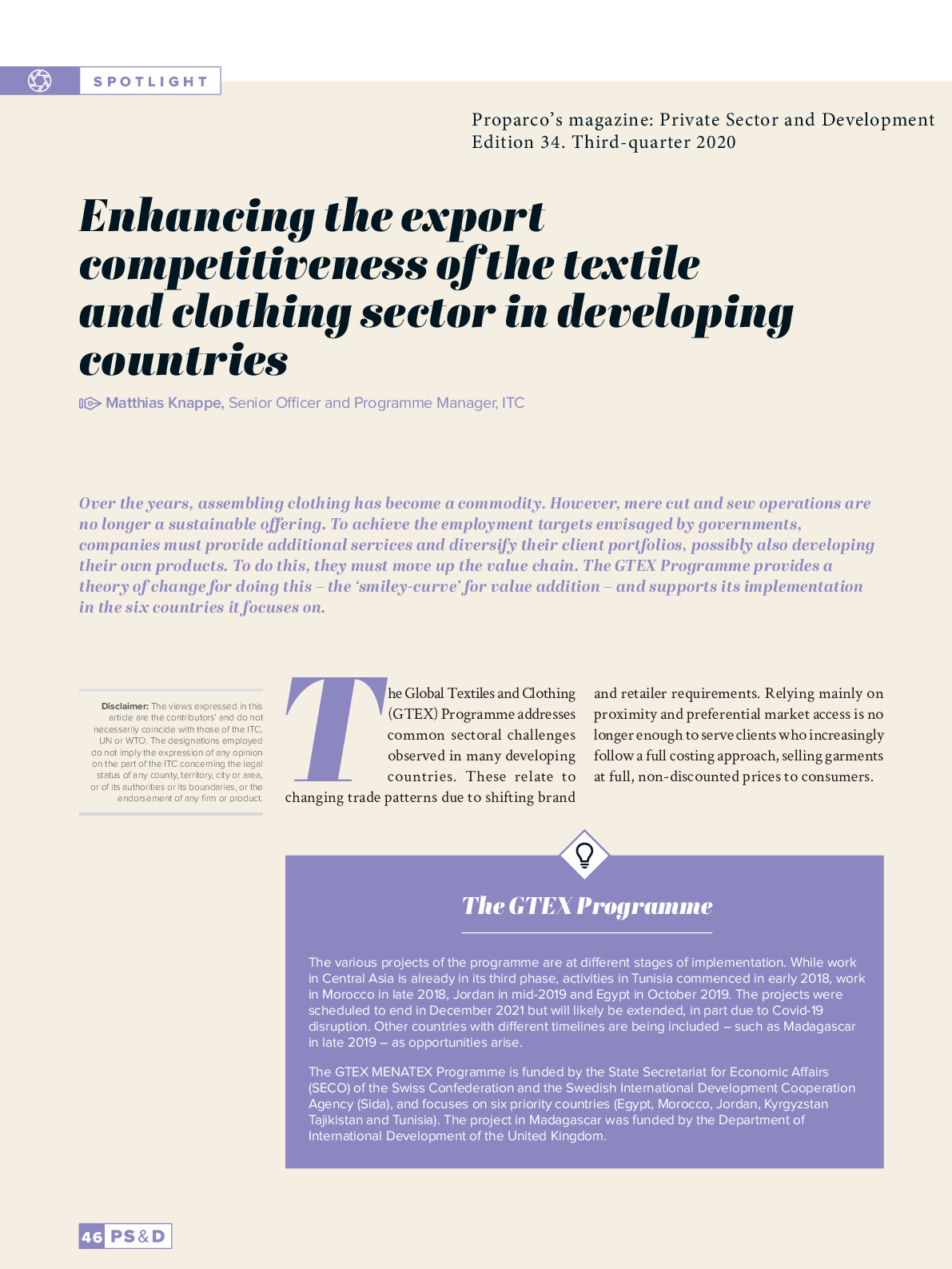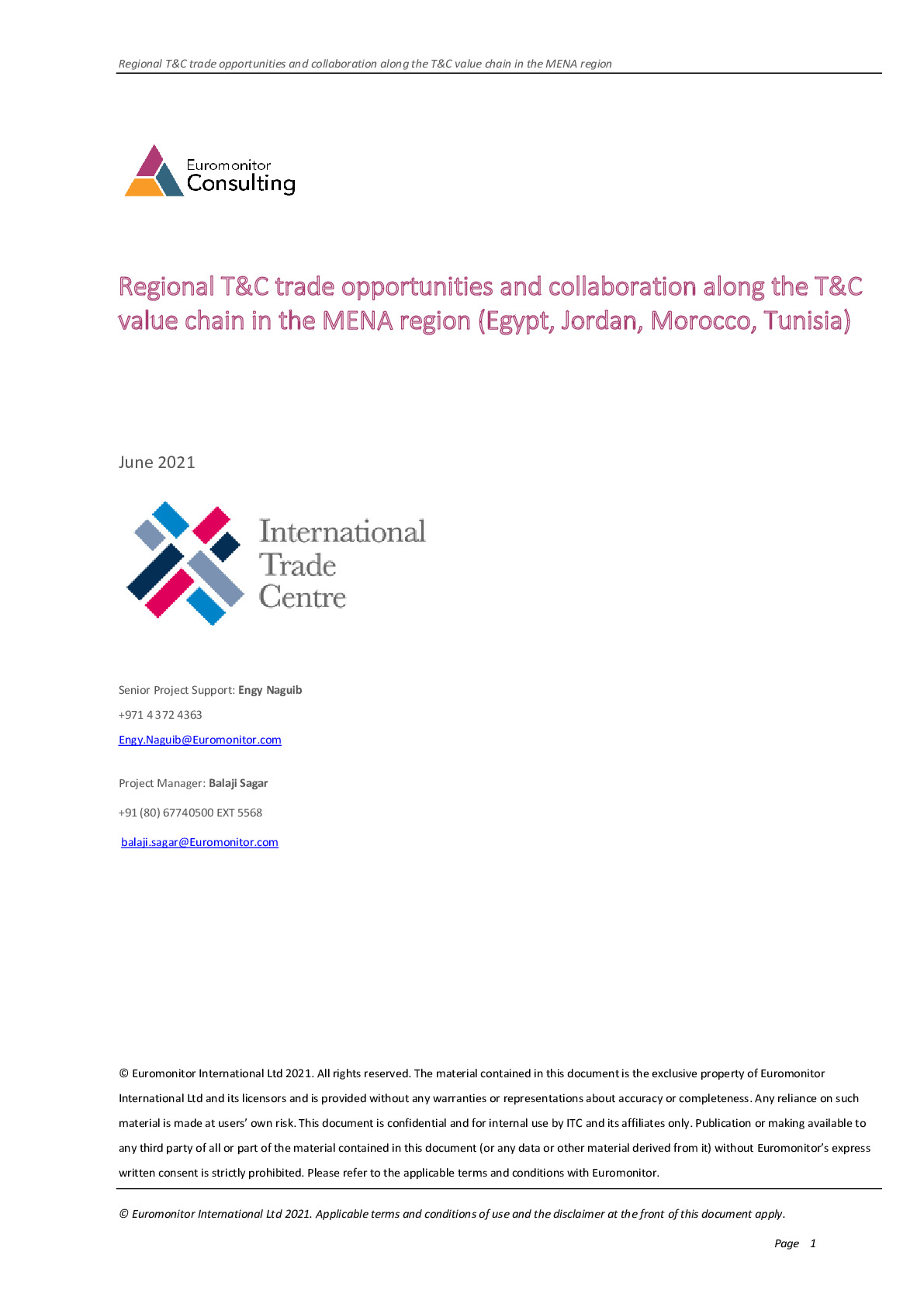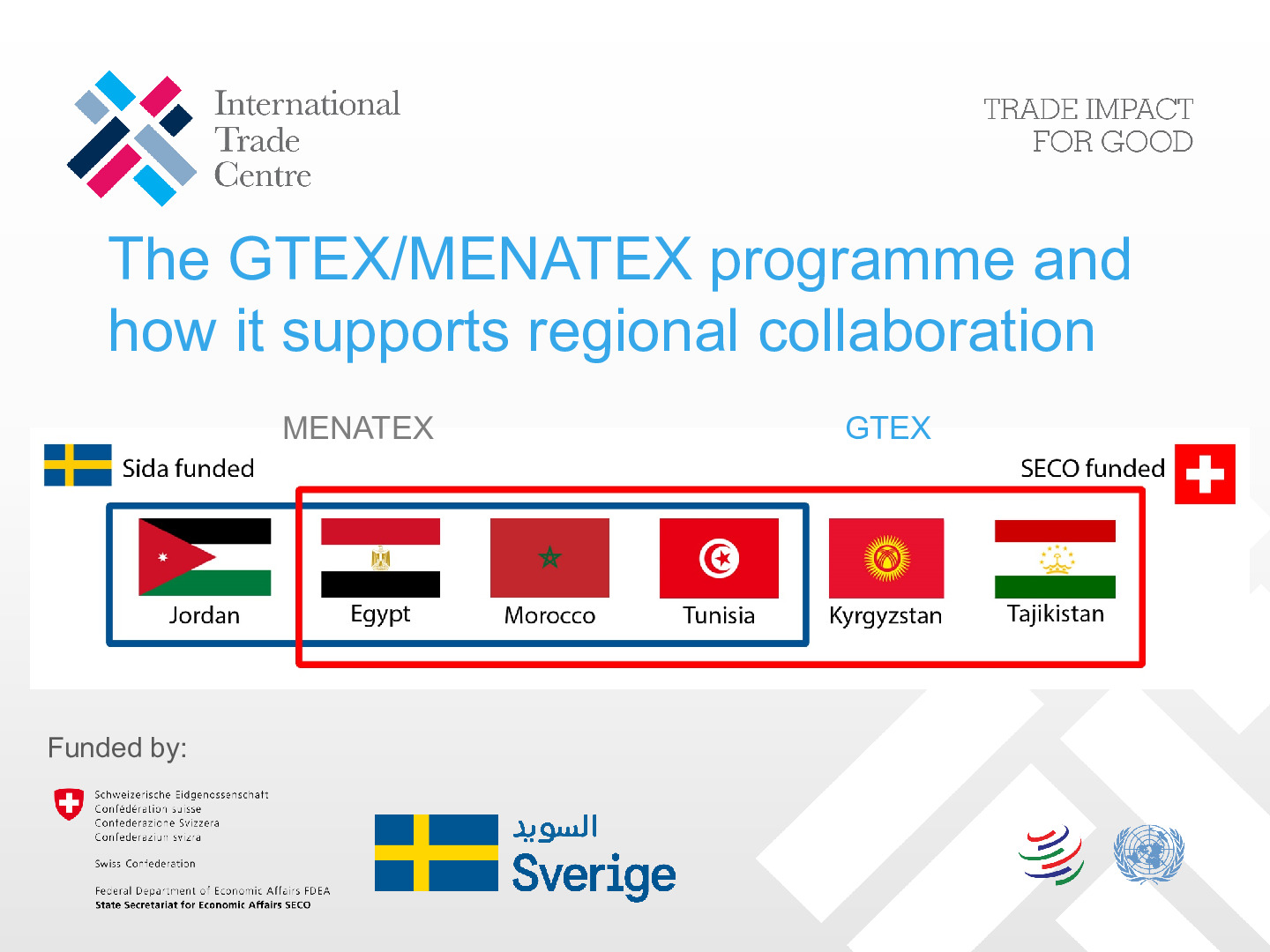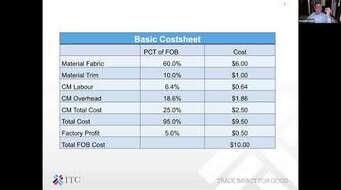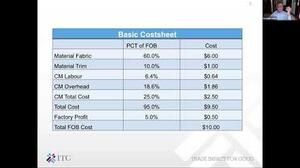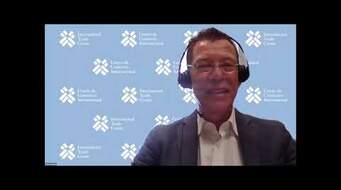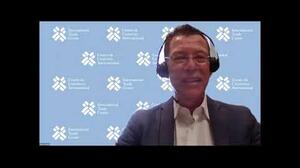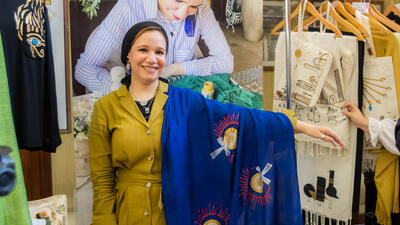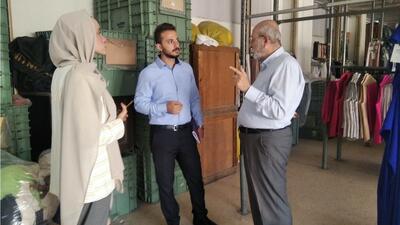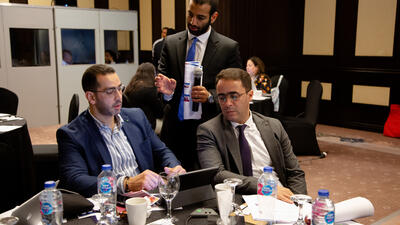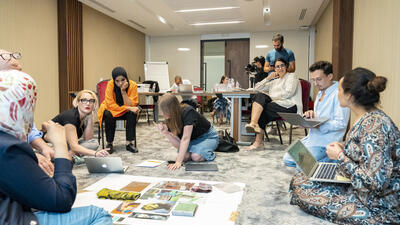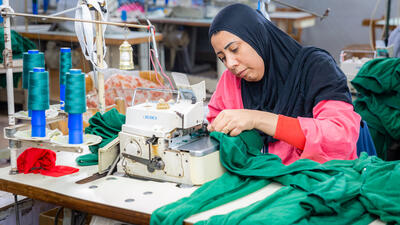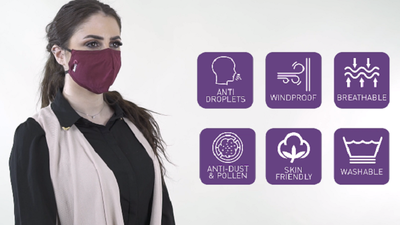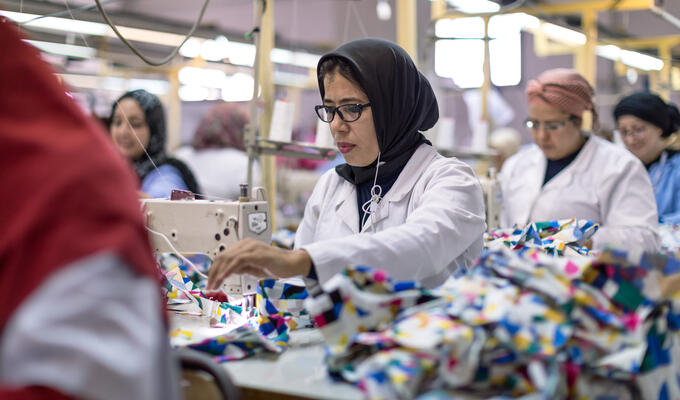

Jordan: Improving the international competitiveness of the textile and clothing sector (MENATEX)
Overview
Summary
The MENATEX Jordan project is part of the Textiles and Clothing (T&C) programme for the MENA region (MENATEX) which, in addition to Jordan also covers Egypt, Morocco, and Tunisia. The project is funded by the Government of Sweden.
MENATEX Jordan intends to increase Jordan’s export competitiveness in the T&C sector. The envisaged impact of the project is to increase employment and income along the T&C value chain. To achieve this long-term objective, the project foresees to accomplish two major outcomes. The first one is related to the institutional infrastructure around the sector, including policy aspects, where required, and is formulated as “Improved business environment and TISI performance in the T&C sector”. The second outcome targets the enterprise level, which is formulated as “Improved competitiveness of SMEs in the T&C sector”. A total of 30 enterprises are benefiting from in-depth project support.
Partners
Sustainable Development Goals
Changing lives in the textile and clothing sector
The ITC MENATEX project in Jordan focuses on capacity building in the textile and clothing sector, one of the country’s main drivers of industrial development and job creation. The project’s goal is to increase productivity leading to more jobs and income, and ultimately improve people’s lives.
For example, Jordan's leather and weaving industry took qualitative leaps over the past two decades, attracting investments from international brands, which led to increased production, improved operations and thousands of new jobs. 85% of Jordan’s textile and clothing are now exported to the US market.
We provide direct technical aid in terms of market and product diversification to 21 businesses, as well as working with several Trade and Investment Support institutions supporting the sector. The project also targets satellite units due to their role and importance in creating job opportunities for refugees and women from rural areas.
Turning the COVID-19 into opportunities
The apparel industry sector in Jordan, one of the largest employers in the country, was one of the sectors most affected by the COVID-19 crisis. In 2021, local demand crashed. At the same time, the pandemic affected the entire supply chain, making it more difficult to access and import raw materials, which led to a decline in production and an increase in costs.
Some companies were unable to pay their workers, while others cut back salaries. With ITC’s support, several factories in the leather and knitting sectors pivoted their production to surgical masks, suits, shoes and sheets and transformed to produce medical supplies and masks. They met national needs and exported the surplus to 30 countries around the world.






